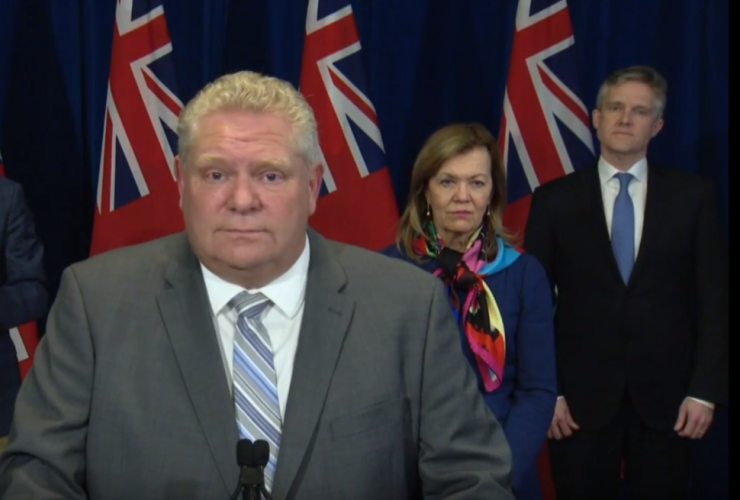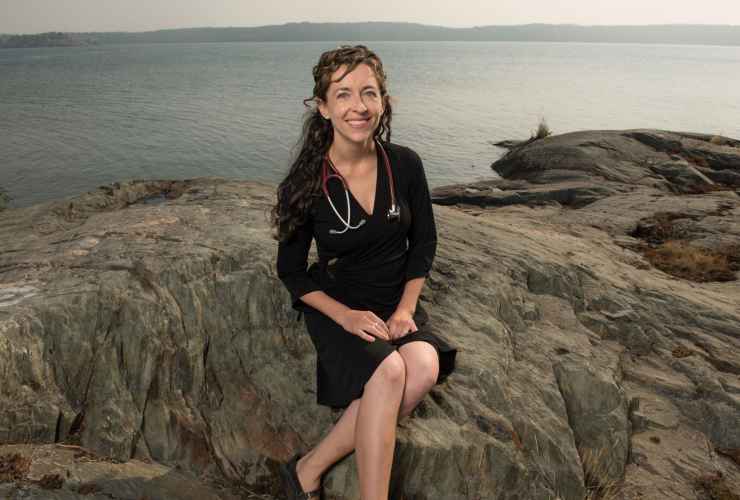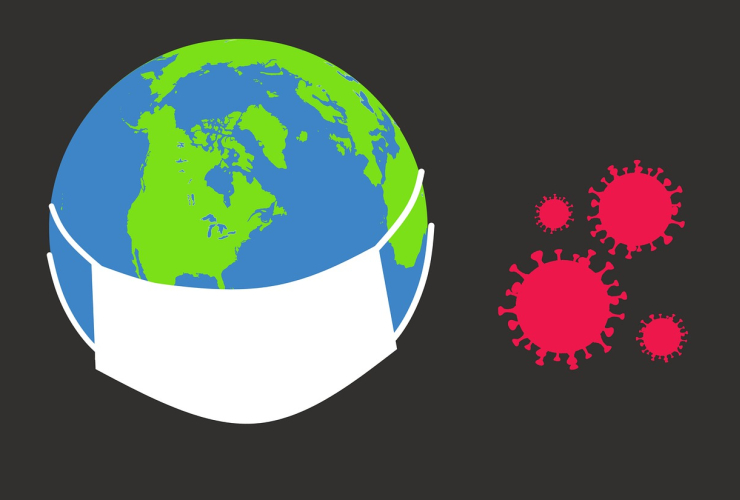The unrelenting climb in COVID-19 cases in Canada continued Thursday amid tightening restrictions aimed at curbing the pandemic as experts warned against prescribing or using unproven cures for the disease that has killed 39 people and infected close to 4,000 others.
Despite the surge, Canada's chief public health officer, Dr. Theresa Tam, said the health system had been coping but warned of the dangers facing seniors in nursing homes.
"The fact that Canada's fatality rate is at one per cent indicates that the health care system is not currently overwhelmed," Tam said. "These fatalities could be reduced further by preventing the illness in our most vulnerable population."
New infections and deaths were reported across the country. A 91-year-old man in a seniors home became the eighth person in Quebec to succumb to COVID-19, authorities said. Premier Francois Legault reported 1,629 confirmed cases, up by 290. Ontario reported 170 new cases, pushing its total closer to 900 — along with six deaths since Wednesday. Fifteen people have died.
The pandemic, which is taxing the health-care system, has idled large swaths of the work force in a matter of days. Claims for employment insurance benefits have skyrocketed.
To ease the financial devastation, governments across the country have opened the money taps. They've also urged creditors to go easy on those suddenly unable to make rent or other payments.
Prime Minister Justin Trudeau said the federal government was asking banks and credit card companies to lower interest rates for financially struggling Canadians. The government was also looking at extending lower-interest credit directly to consumers, Trudeau said on Thursday.
Parliament on Wednesday approved the flow of $52 billion in direct financial aid to Canadians and another $55 billion in tax deferrals. Still, it could be weeks before needy recipients start getting cash in their hands.
The grim situation was being seen around the globe, with more than half a million people identified as infected and about 23,000 deaths reported. Italy has seen more than 8,000 deaths and the United States has reported close to 70,000 cases, about 1,000 fatal. China, where the virus is believed to have originated, has gradually begun returning to normal.
Frantic efforts to develop a vaccination or cure are ongoing around the world and experts are warning about the risks of unproven treatments. British Columbia's College of Pharmacists urged health professionals to resist demands for access to anti-viral or anti-malaria drugs not proven safe or effective for treating the virus infection.
If therapies such as the anti-malarial hydroxychloroquine are prescribed outside of a clinical trial, pharmacists have been instructed not to fill the prescription, the college said.
COVID-19 is highly contagious and can strike anyone, although it is older people and those with less optimum health who are most at risk of succumbing to the flu-like illness, experts say. People can also infect others without showing any signs themselves.
Government and health authorities repeated their pleas for people to keep their distance from others and to wash hands frequently, with fines or jail threatened for those violating rules to self-isolate or avoid larger gatherings.
Activists pressed concerns about the difficulties facing the homeless. The closure of coffee shops and drop-in centres has only made it harder for those without homes to wash their hands and keep their distances from others. Vancouver said it would open two emergency centres downtown for homeless people.
Grocery Gateway, which delivers supermarket goods ordered online in and around Toronto, said one of its drivers has tested positive for COVID-19. The company, which bills itself as Canada’s largest online grocery delivery service, said it had alerted customers who had contact with the driver over the past 14 days.
For those returning to Canada, a mandatory 14-day quarantine is now in effect. Scofflaws face a maximum $750,000 in fines or six months in jail. Tam said random checks including home visits, would be done to ensure people abide by the quarantine law.
Trudeau said he was talking to the United States about ensuring the Canada-U.S. border remains free of military presence. The U.S. was reported as considering troop deployment to its northern border to thwart irregular border crossers, something the Trudeau government said was essentially a domestic American decision.
This report by The Canadian Press was first published March 26, 2020.
A person must carry the virus
A person must carry the virus for 3 days or more before it can be picked up on a test! For those 3 days a person is contagious! An immediate test after a suspected exposure will produce nothing.
The way I understand it is
The way I understand it is that the virus can be detected earlier than symptoms show up, which means that in Canada, our policy of testing only people with symptoms is missing a lot of contagious people.
See this article, written as an opinion piece by the lead authors of a very recent, as yet unpublished study, which would explain why the caseload curve of community spread becomes so steep:
https://www.theguardian.com/commentisfree/2020/mar/20/eradicated-coronav...
My good doctor friend who is
My good doctor friend who is on the front lines is telling people DO NOT USE IBUPROFEN! It makes the virus highly dangerous.
Taking Vitamin D and C will help.
And eat good food. Not sugary junk.
This appears to be based on
This appears to be based on an animal study which found that non-steroidal anti-inflammatory drugs have an opposite effect with COVID-19, compared to with other coronaviruses.
Medical Officers of Health, and many doctors, don't choose to err on the side of caution.
There is also a mouse study with implicates a gene that produces an enzyme which converts angiotensin from one form to another. The researchers used "knock-out" mice, genetically modified mice with a particular version of that gene that doesn't "work", expecting those mice to have a high mortality rate when injected with the virus; to their surprise, they didn't get sick at all. Apparently that gene is common to humans, but as yet I've been unable to fine or figure out which ACE gene it is ... there's a lot of reading to do to get there, and a lot of learning for me along the way.
(It's not the worst thing one might do, I suppose, locked-in, and even old people need to occupy themselves in ways they didn't before all this happened.)
It might be a clue to how/why some very, very old people, in their 90s and recently even a centenarian, get sick but fully recover.
I wonder if Vit D might be part of the reason 'flu generally is a winter illness.





Comments